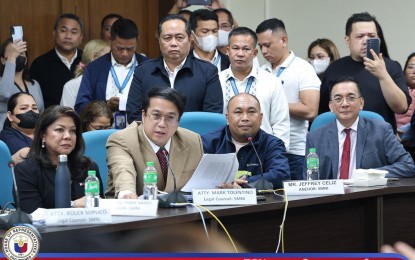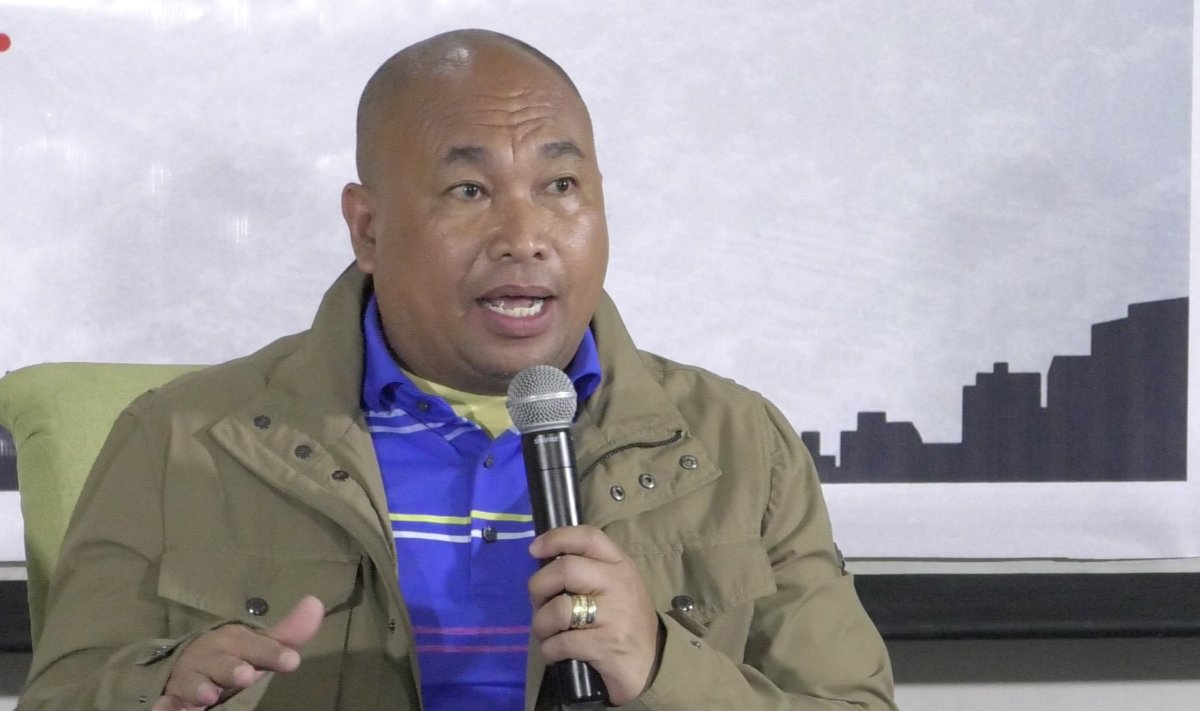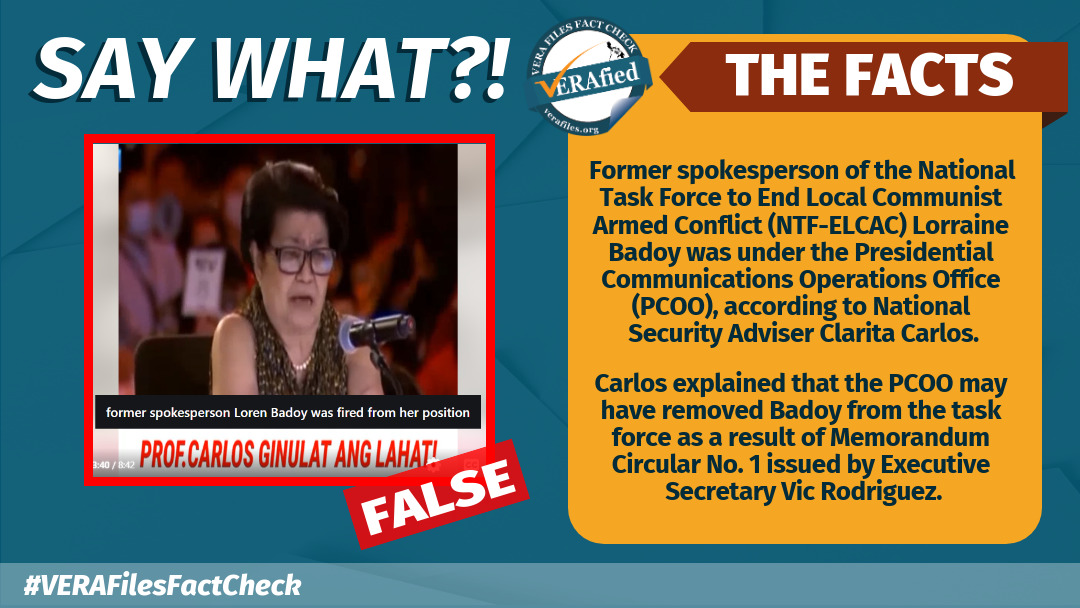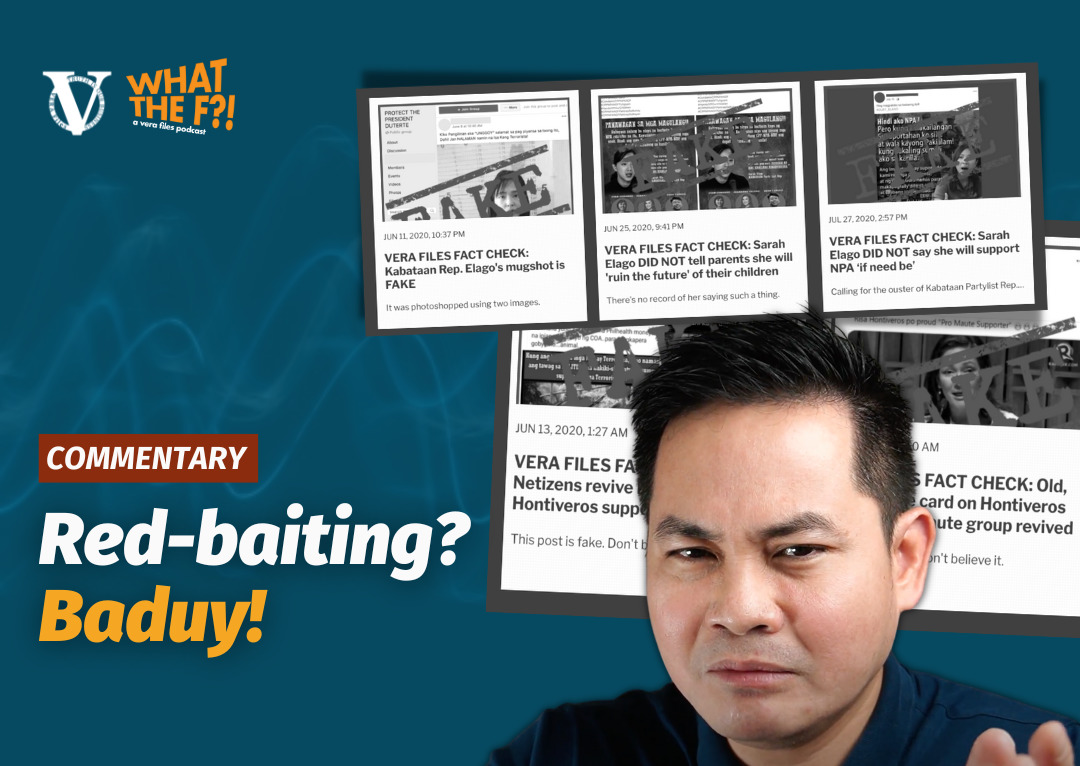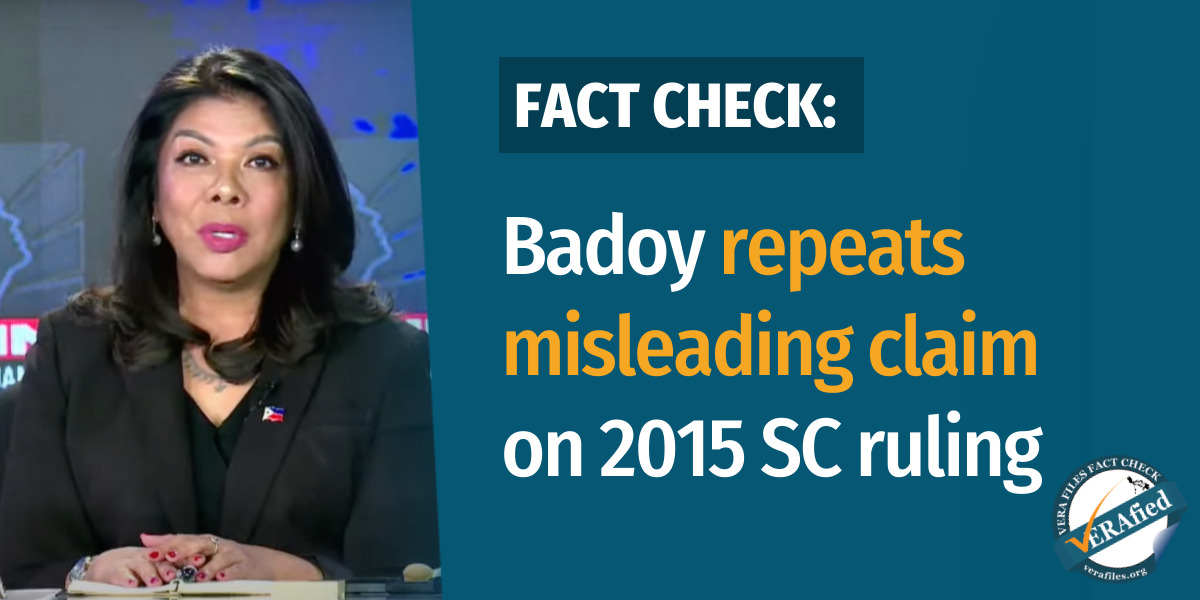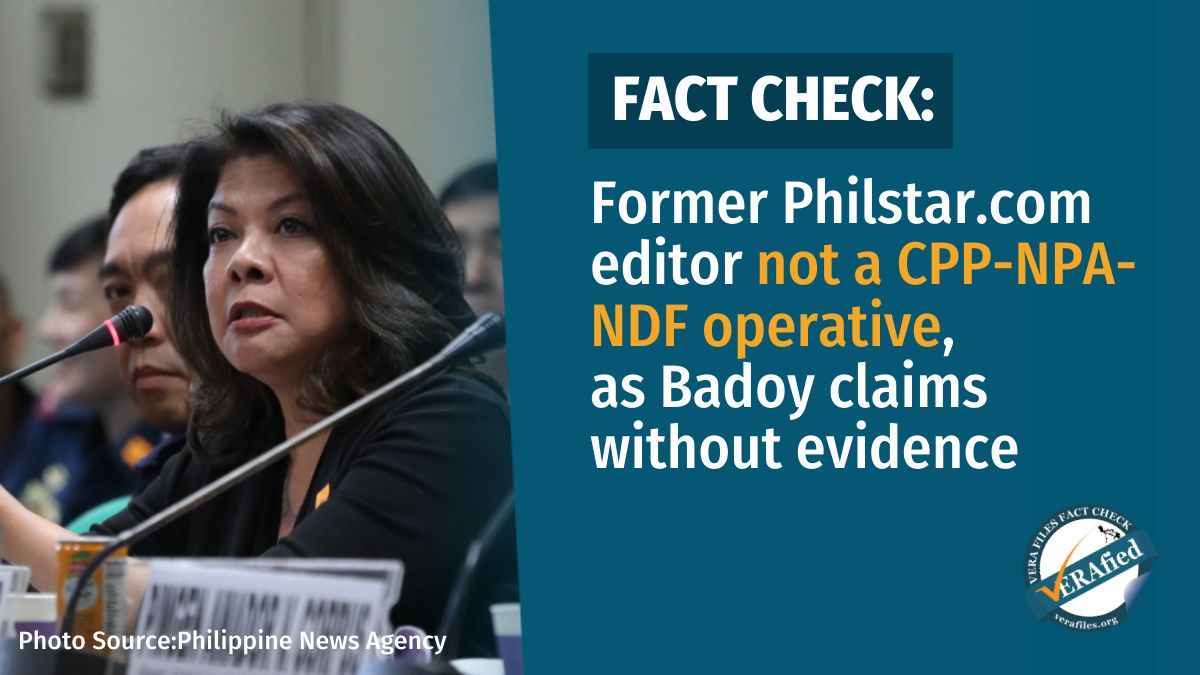Jeffrey “Ka Eric” Celiz and Lorraine Badoy, both anchors of Sonshine Media Network International (SMNI) news channel, found themselves in hot water for refusing to reveal the identity of their sources, who claimed that House Speaker Ferdinand Martin Romualdez spent P1.8 billion in just a year for his travels.
Celiz, a former activist who claims to be an ex-cadre of the New People’s Army, and Badoy, a licensed physician who served as undersecretary in the Presidential Communications Office under the Duterte administration, were cited for contempt and detained on Dec. 5 at the Batasang Pambansa. They were released on Dec. 12 for “humanitarian considerations” in the spirit of the Christmas season.
“I will not answer it because I am protected by the law, as per advice and conference with my lawyers here. I am protected by the Sotto Law,” said Celiz in a Dec. 5 hearing of the House Committee on Legislative Franchises.
In a Nov. 30 hearing of the House committee, Celiz said his source was “an employee of the Senate” but did not identify the person, citing that the Sotto Law protects “the source of every journalist or reporter.”
What is the Sotto Law? Who does it protect? Here are five things you need to know:
-
What is the Sotto Law about?
The Sotto Law refers to Republic Act (RA) No. 53, which was enacted in 1946. It is known as the Sotto Law in honor of its author, Sen. Vicente Sotto, the grandfather of former Senate president Vicente “Tito” Sotto III.
The law “grants the journalist the right to refuse to reveal the sources of information that are related to him in confidence,” according to Numeriano Rodriguez Jr., lawyer and former media law instructor at the Ateneo De Manila University’s Master in Journalism program.
“[T]hat privilege is, therefore, the purpose, not only of protecting the journalist, the writer, the writer of the news item, if at all, but also to protect the source,” he explained.
RA No. 1477, which amended RA No. 53 in 1956, states:
“Without prejudice to his liability under the civil and criminal laws, the publisher, editor, columnist or duly accredited reporter of any newspaper, magazine or periodical of general circulation cannot be compelled to reveal the source of any news-report or information appearing in said publication which was related in confidence to such publisher, editor or reporter unless the court or a House or committee of Congress finds that such revelation is demanded by the security of the State.”
Source: Supreme Court E-Library, Republic Act No. 1477, Accessed on Dec. 15, 2023
Rodriguez stressed that a “very basic principle” under the Constitution is the promotion of press freedom and freedom of the press, encouraging information dissemination that “may be of public interest.”
Without such protection, he added, a source who has some information may be afraid to come out because his/her identity may be traced and risk being the subject of prosecution or persecution. “Then there will be no motivation for him to come out even if he may be imbued with civic-mindedness and an interest to help society,” he pointed out.
Rodriguez noted the importance of adding the phrase “without prejudice to his liability under the civil and criminal laws” when RA 53 was amended by RA 1477.
“Naidagdag doon ‘yung the possible liability of a journalist when [it comes to] civil and/ or criminal liability under the law for reports that may be violative of these laws,” he said.
“There was an intention to balance the competing interests between the constitutional importance given to public debate to ventilate issues and the private right of the person or persons who may be affected.”
In August 2019, RA 1477 was further amended by RA 11458, expanding the scope of the law to include broadcast, wire service organizations, or electronic mass media, including cable television and its variants, “who cannot be compelled to reveal the sources of any news item, report or information… related in confidence to the media practitioner.”
-
What are the exceptions to the Sotto Law?
The first iteration of the law states that “the court or a House or committee of Congress” could mandate the disclosure of the source if it was deemed to be in the “interest of the state.”
However, Rodriguez said: “Anything can be, and will be and should be an interest to the state. So napakalaki ng exception na you will have to reveal. It’s almost like diminishing or watering down the protection granted by the law to the journalist and to the source. Kasi lahat pwedeng pumasok do’n sa exceptions.”
Under RA 1477, “interest of the state” was changed to “security of the state.” “National security is something that is very serious, that may affect the very existence of the state or the crumbling of the government,” Rodriguez explained.
-
Who qualifies as an “accredited journalist” to be protected by the Sotto Law?
Rodriguez said the intention of the law is to “cover almost anyone engaged in [media and journalism].” This includes bloggers or influencers “who just do blogs in their bedrooms,” he added.
“At the bottom of this issue is the right of free expression. So, if you say something that is of interest to the public, that you think the public should know, then, I don’t think there’s a question that this provision of the law should protect you,” Rodriguez said.
Rodriguez suggested that the law be amended to remove the word “accredited.” He explained: “Journalists, media practitioners don’t need any accreditation from any government agency because any such form of accreditation will take the form of regulation, which is anathema to the concept of press freedom.”
“You don’t need to be a member of a mainstream news organization or broadcasting organization to be able to invoke this,” he said.
-
What happens if the information given by a source turns out to be false?
Rodriguez said, “Under RA 53, as amended, the prohibition against compelling a journalist to reveal his source does not make any distinction between a piece of information that is true and one that turns out to be false.”
“The clear import of the law is that a journalist cannot be compelled to reveal his source, except when the interests of national security demands,” he explained.
However, any person “who may feel alluded to and [feel] that his reputation is besmirched” may file a defamation suit against the journalist. “Whether such a defamation suit will prosper is a different question,” he clarified.
“The availability of this legal remedy is made clearer by the insertion of the phrase ‘without prejudice to his liability under the civil and criminal laws xxx,’ which was not present in the original text of RA 53,” he said.
-
If the journalist is charged with libel, will the source also be held accountable?
Rodriguez noted the difficulty in suing an anonymous person. “The court must peremptorily acquire jurisdiction over the person of the accused or defendant,” he said.
“But, assuming that the source has been unfortunately revealed or independently discovered, a defamation suit against him will have to be resolved, like in a defamation suit against the journalist, based on the law on defamation, prevailing jurisprudence and evidence,” he added.
On Dec. 11, several news outlets reported that Celiz revealed the identity of his source to Parañaque City Rep. Gus Tambunting, the chairman of the House Committee on Legislative Franchises. Without giving a name, Tambunting told reporters Celiz’s source is a male and not a staff member of any of the senators.
A day after, Celiz was cited in an ABS-CBN news report denying that he revealed the name of his source to Tambunting.
